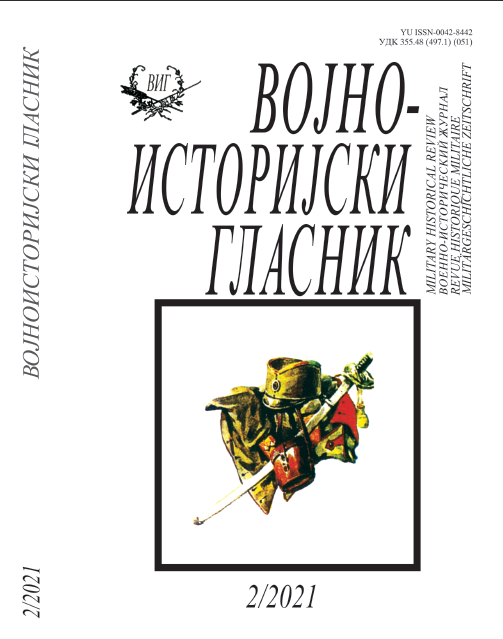СЛЕПА АМБИЦИЈА ИЛИ БРИТАНСКА СУБВЕРЗИЈА?: ЈУГОСЛОВЕНСКИ ОФИЦИРИ, БРИТАНСКЕ ОБАВЕШТАЈНЕ СЛУЖБЕ И ДРЖАВНИ УДАР ОД 27. МАРТА 1941. ГОДИНЕ
BLIND AMBITION OR BRITISH SUBVERSION?: YUGOSLAV OFFICERS, BRITISH INTELLIGENCE AND THE COUP OF 27 MARCH 1941
Author(s): Dragan BakićSubject(s): Military history, WW II and following years (1940 - 1949)
Published by: Institut za strategijska istraživanja
Keywords: Coup d’état; 27 March 1941; Yugoslavia; officers; Dušan Simović; Borivoje Mirković; Prince Paul; British Intelligence Services; Second World War
Summary/Abstract: This article analysis two insufficiently explored aspects of the 27 March 1941 coup d’état in which some of the senior officers deposed Regent of Yugoslavia, Prince Paul, which signaled the rejection of the freshly signed adherence to the Tripartite Pact with the Axis Powers and led to the German conquest of Yugoslavia. Firstly, the article discusses the reasons behind the officers’ decision to topple the government and argues that it had much to do with the unsavory tradition of the Serbian army stemming from the May Overthrow in 1903 when the Obrenović dynasty was deposed in a particularly gruesome manner. Just as the 1903 putchists had taken pride in bringing down the absolutist regime of King Milan and introducing parliamentary democracy under the Karadjordjevićs, the rebel officers of 1941 believed they were the bearers of a democratic spirit of the Serbian people who ended the unpopular and autocratic government under Prince Paul. The change in foreign policy away from the Axis Powers and towards democratic Great Britan was an avowed goal of the coup. Secondly, the article examines the contacts between the Yugoslav officers and British intelligence agencies other than SOE whose activities are well known but ultimately had little effect. It was the obscure links with the rebel officers established by SIS and the military and air attaches from the British Legation in Belgrade that mattered in facilitating the change in government in keeping with Whitehall’s requirements. In particular, the analysis focuses on the exchange of military information between the Yugoslavs and British in late February 1941. The latter provided a seemingly invaluable document, a record from the meeting of the most senior German commanders which suggested that German invasion of Yugoslavia was imminent. This document might have been a clever inducement on Britain’s part to draw Belgrade into the war and could have influenced the putchists, to a certain extent, to act decisively.
Journal: Vojnoistorijski glasnik
- Issue Year: 2021
- Issue No: 2
- Page Range: 53-83
- Page Count: 31
- Language: Serbian

